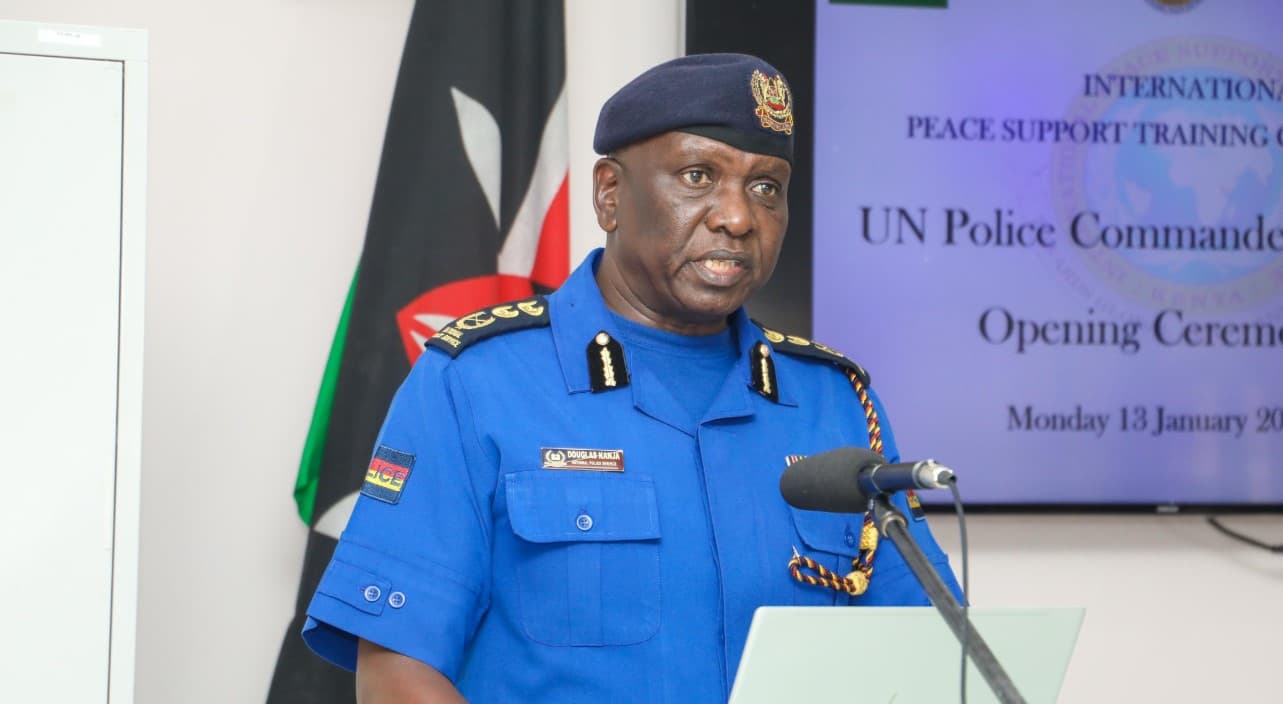We're loading the full news article for you. This includes the article content, images, author information, and related articles.
Inspector General Douglas Kanja's high praise for the National Police Service clashes with official data showing a surge in specific crimes and persistent allegations of brutality, raising critical questions for Kenyan public safety.

In an exclusive interview with the Daily Nation on Friday, November 21, 2025, Inspector General of Police Douglas Kanja awarded the National Police Service (NPS) a laudatory "8 out of 10" rating for its performance over the past year. "Our country is safe and secure, and that is a testament to the good work being done," Kanja stated, defending his optimistic assessment. This declaration, however, stands in stark contrast to a growing body of evidence from government agencies and human rights organizations, which paints a more complex and troubling picture of Kenya's security landscape.
Official statistics present a mixed but concerning reality. While the Kenya National Bureau of Statistics (KNBS) in its 2025 Economic Survey noted a 3.5% overall drop in reported crimes in 2024 to 101,220 cases, this followed a record high of 104,881 in 2023. More granular data reveals disquieting trends. A February 2025 analysis highlighted a steady rise in crime over the last decade, with 2023 marking the highest number of reported incidents. The KNBS report itself detailed a rise in crimes involving police officers, with 246 cases in 2024, up from 180 the previous year. Furthermore, Kenya experienced an unprecedented wave of femicide in 2024, with at least 170 women killed, a shocking 79% increase from 2023, according to a report by Africa Uncensored and Odipo Dev.
The Inspector General's tenure, which began in September 2024, has been marked by significant controversy and legal challenges that cast a shadow on his positive self-appraisal. Throughout 2025, Kanja and his senior command have faced severe criticism and lawsuits over allegations of excessive force, enforced disappearances, and extrajudicial killings, particularly in the state's response to protests in June 2024 and July 2025. A report by Amnesty International Kenya cited 128 deaths resulting from the use of excessive force by security agencies during these protests. In August 2025, five Kenyans filed a lawsuit against the IG and the National Police Service Commission (NPSC), demanding a judicial inquiry into forced disappearances and alleging a failure to investigate abuses. The IG has also been accused of contempt of court for failing to appear before the High Court to address the alleged abduction of several young men in late 2024.
Public perception of the police remains a significant challenge. The Ethics and Anti-Corruption Commission's (EACC) 2024 National Ethics and Corruption Survey identified police officers as one of the professional groups most involved in unethical practices and corruption. This aligns with persistent concerns about accountability. The Independent Policing Oversight Authority (IPOA), the primary civilian watchdog, launched an ambitious Ksh 13.1 billion five-year strategic plan in September 2025 to enhance police accountability. However, IPOA officials admit their effectiveness is severely hampered by underfunding and a critical shortage of staff; the agency operates with only 289 personnel (21% of the required workforce) to oversee more than 130,000 police officers.
Internally, the NPS has been navigating a period of institutional friction. A protracted legal and administrative battle between IG Kanja and the NPSC over the authority to recruit 10,000 new police constables dominated headlines in late 2025. The Employment and Labour Relations Court ultimately ruled in the IG's favour on October 31, 2025, affirming his constitutional mandate over recruitment and clearing the way for the much-needed hiring, which Kanja described as a success on November 17. The IG has emphasized that these recruits are critical for bolstering the service's numbers, which currently stand at a ratio of one officer for every 519 citizens, below the UN-recommended ratio of 1:450.
Simultaneously, the IG's own leadership is the subject of a legislative debate. A proposed amendment to the National Police Service Act seeks to introduce a retirement age of 60 for the Inspector General. If passed, this could see Kanja, who is 61, vacate his office before the end of his four-year term, a move the NPS leadership has opposed, arguing that competence and experience should outweigh age. As the police service moves to integrate 10,000 new officers and navigate ongoing reforms, the divergence between the leadership's assessment and the documented experiences of many Kenyans remains a critical issue for national security and public trust.
Keep the conversation in one place—threads here stay linked to the story and in the forums.
Sign in to start a discussion
Start a conversation about this story and keep it linked here.
Other hot threads
E-sports and Gaming Community in Kenya
Active 9 months ago
The Role of Technology in Modern Agriculture (AgriTech)
Active 9 months ago
Popular Recreational Activities Across Counties
Active 9 months ago
Investing in Youth Sports Development Programs
Active 9 months ago